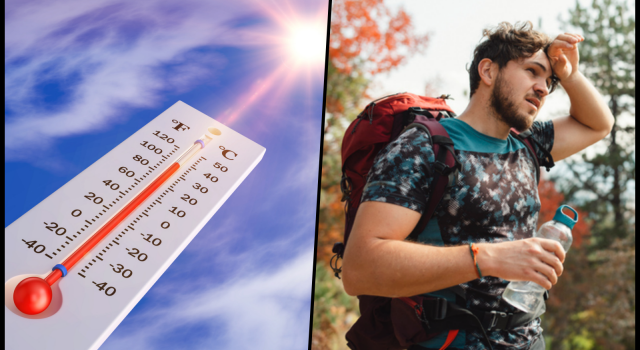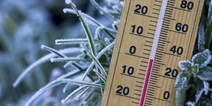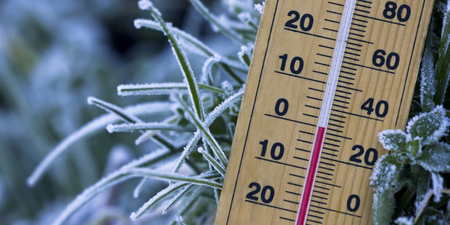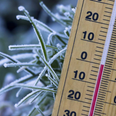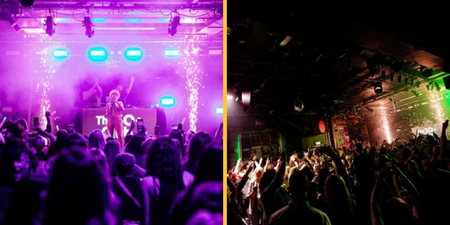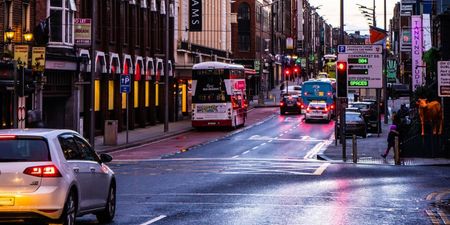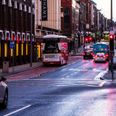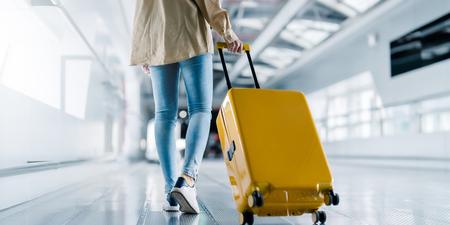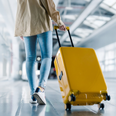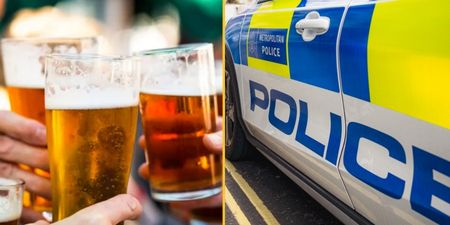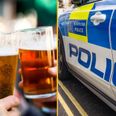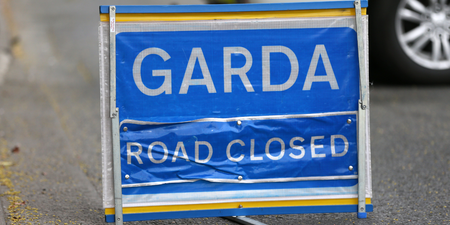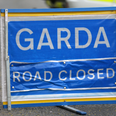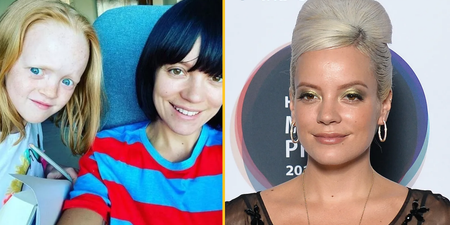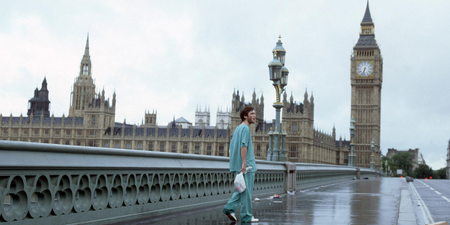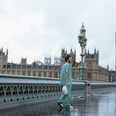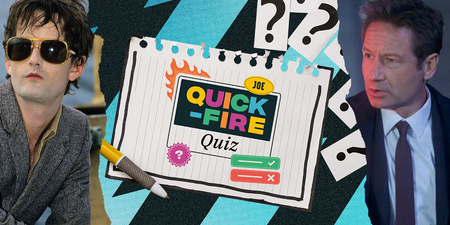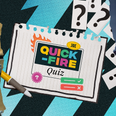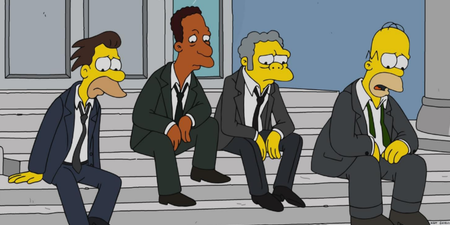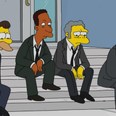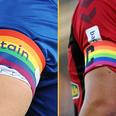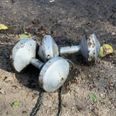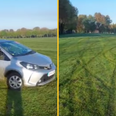Need tips on how to stay cool? Read on…
So, it’s about to get very, very warm indeed.
Ireland’s hottest ever day since the collection of such data began is simmering in the air, with the current record temperature of 33.3 degrees hanging in the balance ahead of Monday.
It’s serious business, too, with Met Éireann issuing a rare Status Yellow heat warning, highlighting the “exceptionally warm weather” on the horizon. The Road Safety Authority, meanwhile, is urging motorists to take caution as the temperature rises.
You may well be wondering how to look after yourself amidst this particular sweltering moment. Thankfully, the Health Service Executive of Ireland (HSE) has a few tips to cool down.
The HSE is especially keen to highlight the dangers of skin cancer – the most common type of cancer in Ireland, with almost 13,000 cases diagnosed each year, a number that is rising “rapidly” according to a HSE spokesperson. However, it is one of the most preventable forms of cancer.
The HSE National Cancer Control Programme (NCCP) has teamed up with Healthy Ireland to deliver the ‘five S’s’ – it’s like Dodgeball, but a great deal more serious – in order to help people stay safe in the days ahead. That advice is as follows:
- Slip on clothing that covers your skin such as long sleeves, collared t-shirts.
- Slop on sunscreen on sun-exposed areas using SPF minimum 30+ for adults and 50+ for children which has high UVA protection and is water-resistant. Re-apply regularly. Sunscreen cannot provide 100% protection, it should be used alongside other protective measures such as clothing and shade.
- Slap on a wide-brimmed hat.
- Seek shade such as sitting in the cover of trees to avoid direct sunlight, especially between 11am and 3pm. Use a sunshade on your buggy or pram. Keep babies and children out of direct sunlight.
- Slide on sunglasses with UV protection to protect your eyes.
In addition, the HSE is urging people to not deliberately try and get a suntan, avoid getting sunburn and never use a sun bed during these strong conditions.
As far as children are concerned, the HSE warns parents that exposure to UV radiation is particularly harmful and so protecting skin during childhood is of the utmost importance. For children aged up to one year old, it’s best to keep them in shade and wear clothing that covers their skin while outdoors.
Babies up to six months old should be protected from sunlight by using shade rather than sunscreen. If you do choose to use sunscreen, be sure to choose one that is suitable for babies or toddlers.
In terms of general advice to avoid heat-related problems, the HSE notes:
Keep cool
- Minimise unnecessary heating – turn off central heating, electrical equipment and lights that are not needed.
- Keep out the sun between 11am to 3pm – stay in the shade or cover windows exposed to direct sunlight
- If you have to go outdoors, protect your skin by using shade, wearing clothing that covers the skin, a wide brimmed hat, sunglasses and sunscreen of 30+ for adults and 50+ for children
- Use natural ventilation such as opening windows when the air feels cooler outside than inside (e.g at night) and where it is safe, secure and feasible to do so
- Increase air flow through buildings wherever possible
- Evaporative cooling – dampening your skin may help keep you cool
- If you are using air conditioning, make sure it is using a fresh air supply, which is important to prevent spread of Covid-19
- Electric fans need to be used with caution, as they may not be safe for higher temperatures and should not be used where a person may be incubating or a case of Covid-19
Stay hydrated
- Make sure you have enough water to drink. It is important to stay hydrated.
- You might like to leave drinks in the fridge
- An adult needs approximately 2 litres of liquid over 24 hours. This may be less for smaller people or those with medical conditions
- Drink more fluids when you feel any dehydration symptoms. The best fluids to drink are water or oral rehydration sachets – chat to your pharmacist about how to use these safely
- Drink enough during the day so your urine is a pale clear colour
Who is particularly vulnerable?
- Heatwaves can affect any of us, but those most at risk are:
- Babies and children
- People >65 years old
- People with underlying health conditions including problems with breathing, heart, kidneys and diabetes
- People with Alzheimer’s and dementia
- People who spend a lot of time outside or in hot places – those who work outdoors or living in homeless settings
Carers – making sure someone drinks enough
- The person you are caring for may not have a sense of how much they’re drinking.
- To help them:
- make sure they drink during mealtimes
- make drinking a social thing, like “having a cup of tea”
- offer them food with a high water content – for example, ice cream or jellies, or fruits like melon
When to get medical help
Contact your GP or the ED if you are unwell and especially if you are showing signs of serious dehydration that needs urgent care:
- are confused and disorientated
- feel very dizzy
- have not peed all day
- feel like your heart is beating fast
- have fits (seizures)
- are caring for someone who is drowsy or difficult to wake
If you’re looking after a dog, DogsTrust Ireland recommends keeping an eye out for the six signs of heatstroke – heavy panting, excessive drooling, diarrhoea, drowsy and uncoordinated movements, vomiting and collapsing.
If your dog shows any of these signs, contact a vet at the earliest possible opportunity.
Heatstroke requires early detection and quick action! It’s important to know what signs to look out for.
For more #Summer safety tips on keeping your dog cool, visit https://t.co/Ep5sOCRGwR #CoolToBeKind pic.twitter.com/X3rr2NA0GQ
— Dogs Trust Ireland (@DogsTrust_IE) July 14, 2022
LISTEN: You Must Be Jokin’ with Aideen McQueen – Faith healers, Coolock craic and Gigging as Gaeilge
